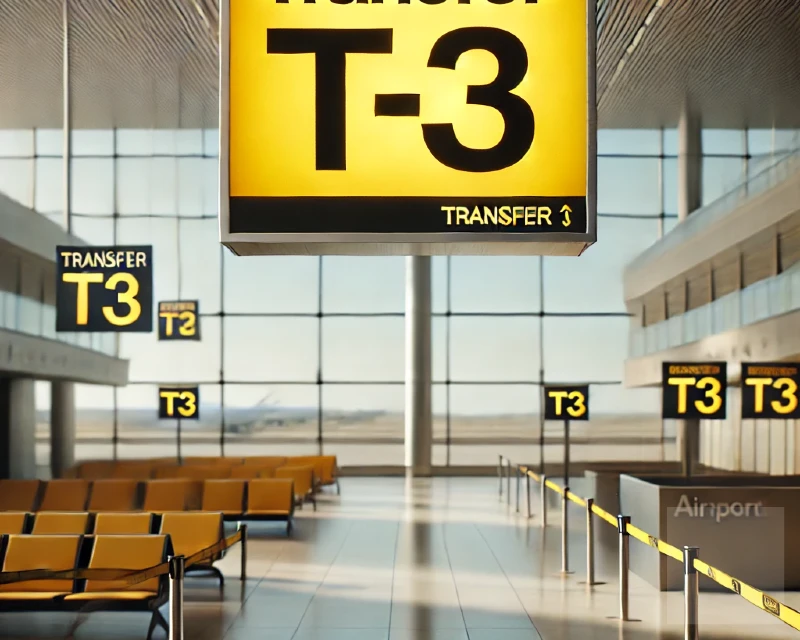
Airport transits: What Nigerian travelers need to know
Navigating international travel can sometimes feel like preparing for a big exam. There’s a lot to know and prepare for, and transits are one of those essential details. When your flight includes a transit, you’ll need to understand the requirements and plan for your layover. Here’s everything to help you handle transits like a pro.
What is a transit?
A transit occurs when your flight includes a layover in another country before reaching your final destination. This can be as brief as a few hours or as long as 24 hours.
Transit points are often in major international airports and allow passengers to switch flights without necessarily leaving the airport. However, each transit country has its own rules, so if you have a Nigerian passport, it’s important to be aware of them.
Why understanding transit rules matters
Transit rules vary by country, depending on nationality, visa status, and how long you plan to stay in the airport. Knowing these details ahead of time can prevent unexpected issues. For Nigerian travelers, transit requirements differ widely across regions.
Transit visas: do you need one?
Some countries require Nigerian passport holders to obtain transit visas even if you don’t plan to leave their airports. Here’s a rundown of common regions and their rules:
Europe (Schengen area): Most Schengen countries, such as France, Germany, and the Netherlands, require a transit visa, known as an Airport Transit Visa, even if you’re just changing flights within the airport.
United Kingdom: If you’re passing through the UK, you’ll generally need a Direct Airside Transit Visa (DATV). If you want to leave the airport, you must get a Visitor in Transit visa.
United States: For layovers in the US, Nigerian travelers need a C-1 transit visa, even if there are no plans to leave the airport.
Middle East: Dubai (UAE) and Doha (Qatar) are common transit hubs in this region. The UAE allows a short-term transit visa if your layover is between 8 and 96 hours. For Qatar, a free transit visa is available for stays of up to 96 hours, which is great if you’d like to leave the airport and explore Doha.
Asia: Transit visa rules vary in Asia. For example, Singapore and Malaysia don’t require a transit visa if you stay in the international transit area, but Japan requires a visa in most cases, even for brief transits.
Africa: Many African countries do not require a transit visa for travelers who remain airside and have onward tickets, but it’s always best to check in advance. Kenya, for example, has transit visas that allow short stays outside the airport.
It’s worth noting that these rules often change. We recommend researching transit requirements before booking your flights. If you’re booking your flights through us at Lery Hago, we’ll provide all the information you need so you can travel with peace of mind.
How to apply for a transit visa
If you need a transit visa, it’s best to apply well in advance. Each country has its application process, but here are some general steps:
- Check transit requirements: Confirm whether you need a transit visa based on your nationality, layover length, and whether you’ll be leaving the airport.
- Gather documents: Commonly required documents include your passport, proof of onward travel (boarding passes or tickets), hotel reservations (if applicable), and recent passport photos.
- Submit your application: You can often apply for transit visas online or at an embassy. While some countries offer expedited processing, others can take several days or even weeks.
- Prepare for fees: Transit visa fees vary by country, so check and budget accordingly.
RELATED: Here’s how to survive a long layover
What to do during your transit
Make the most of your transit time with these ideas.
Explore the airport. Many major airports are like mini cities with lounges, shopping, dining, and entertainment. Some even have showers, spas, and free city tours.
Get some rest. If you have a long layover, consider catching up on rest. Many airports have nap lounges, where you can get comfortable for a fee.
Tour the city. If you have a longer layover and a valid transit visa (or if one isn’t required), you can step out and explore the city briefly.
RELATED: How to boost your Nigerian passport strength
FAQs for Nigerian travelers in transit
- Do all countries require Nigerian passport holders to have a transit visa?
No, it depends on the country. Some only require a visa if you plan to exit the airport, while others need a visa even if you stay airside. Always check specific requirements before your trip. - Can I leave the airport during transit without a transit visa?
It depends on the country’s rules. In some cases, a transit visa allows you to leave the airport and explore the city; otherwise, you must stay in the transit area. - How early should I apply for a transit visa?
Apply at least a month before your travel date. Some countries have fast processing, but this isn’t always the case. - Can I count transit as travel history?
While technically a transit appears in your travel history, it’s not as valuable for future visa applications as an actual stay. For example, a full tourist stay in the UAE is usually more beneficial than a quick layover in Dubai. - Are there transit lounges or resting places in most airports?
Yes, major airports usually have lounges, hotels, or designated resting areas. If you have access to a lounge via your airline or bank card, it can make your transit experience much more comfortable. - Can I bring liquids in my carry-on during transit?
Yes, but liquids must be 100 ml or less, and all containers must fit within a 1-liter transparent, resealable plastic bag. This rule applies at most international airports.
7. Is there any benefit to having a layover in certain countries?
Yes. Some countries offer travellers free city tours or transit visas for extended layovers. This allows you to explore without paying for a full visa.









Leave a Reply